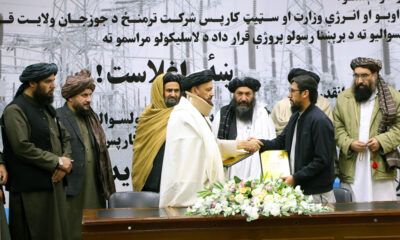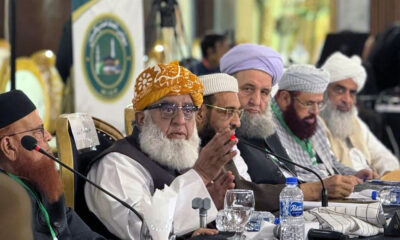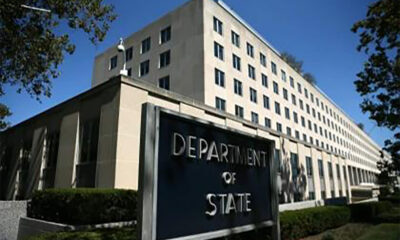Latest News
UN envoy optimistic about peace prospects in Afghanistan
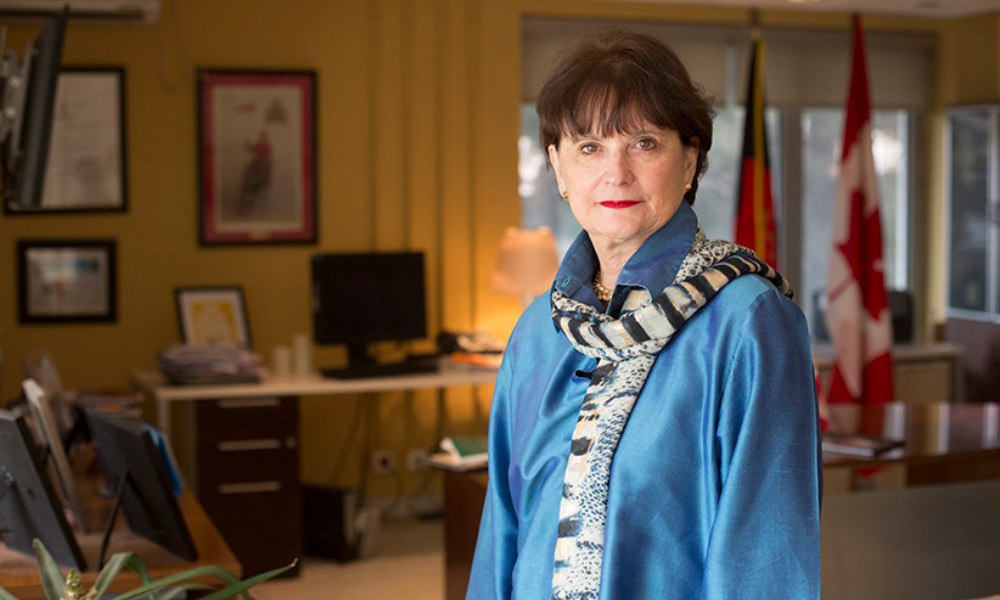
The UN’s top envoy in Afghanistan said the country now has a unique opportunity to turn the corner to a brighter, more stable future after four decades of war.
Deborah Lyons via a video conference told the Security Council on Thursday that even as an unprecedented global pandemic threatens to unravel many of the hard-won socio-economic gains Afghanistan has made over the years, there is now a moment of “emerging hope.”
The UN envoy, who is the Secretary-General’s Special Representative for Afghanistan, said she is “cautiously optimistic” that the talks between the Islamic Republic of Afghanistan and the Taliban negotiation teams will start in the next few weeks in Doha.
“As the two sides embark on what will likely be a long and complex series of talks, I have encouraged them to show the necessary flexibility and foresight, the commitment to peace and, most importantly, compassion for their people that will be needed to bring these negotiations to a successful conclusion,” she told the Security Council.
Lyons, who is also head of the UN Assistance Mission in Afghanistan (UNAMA), described how the formal announcement of a three-day Eid ceasefire by the Taliban and the Government led to a welcome and much-needed reduction in violence.
“A reduction in violence is essential to an environment conducive for peace talks and to pave the way for an eventual permanent ceasefire,” she stressed, telling the Security Council that the United Nations stands ready to support direct peace talks and noting that she has been in discussion with both sides to identify and address their needs, going forward.
The UN envoy described how she has engaged with partners from the region and beyond, and said she is confident that a constructive atmosphere for the peace process can be fostered. But at the same time as new opportunities for peace emerge, she said, COVID-19 is casting a shadow over daily life in Afghanistan.
“Under the leadership of the Afghan Government, the UN is supporting a coordinated response to fight this epidemic,” she said, pointing out how she is counting on the continued generosity of the international community to allow the United Nations to carry forward with the Afghan Government an essential response to the COVID-19 pandemic.
“By working together, we can overcome #COVID19 and support #Afghanistan at the beginning of its nascent peace process so that its people can finally achieve the lasting peace they deserve.” – UN envoy @DeborahLyonsUN tells Security Council. More: https://t.co/4VUs83dcEC. pic.twitter.com/d0lnJkOrjZ
— UNAMA News (@UNAMAnews) June 25, 2020
In addition to presenting an update on prospects for peace and the fight against COVID-19, Lyons highlighted developments in human rights and the humanitarian situation. She spoke about the harsh realities of life for many Afghans and the human cost of Afghanistan’s conflict, which continues to take a devastating toll on civilians, especially children.
In closing, Lyons stressed that COVID-19 is not just a health crisis. She called it a “multi-dimensional crisis impacting an already fragile country.” But by working together, she said, we can overcome COVID-19 and support Afghanistan at the beginning of its nascent peace process so that its people can finally achieve the lasting peace they deserve.
“The UN will continue to stand in partnership with the Afghan people through this time of unprecedented challenge and fragile hope,” she said. “The Afghan people will look to the guidance, to the support, and to the unity of this Council as they chart their way forward on their long road to peace.”
Latest News
Power project signed to electrify 47,000 homes in Jawzjan
According to MoEW, the project will be funded through revenues from Afghanistan’s mines and will provide electricity to around 47,000 families.
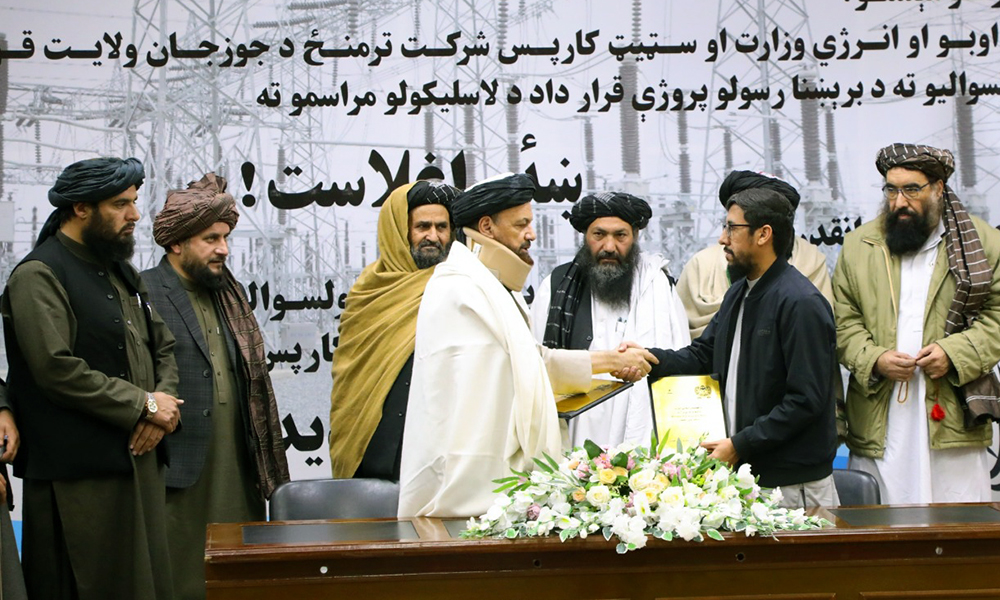
The Ministry of Energy and Water (MoEW) on Tuesday signed a major power supply project worth over 1.8 billion afghanis with domestic firm State Corps to provide electricity to Qush Tepa and Darzab districts in northern Jawzjan province.
The contract signing ceremony, held at the Government Information and Media Centre, was attended by Deputy Prime Minister for Economic Affairs Mullah Abdul Ghani Baradar and senior government officials.
Mawlawi Abdul Rahman Rahmani, Director General of Renewable Energy at MoEW, said the $28.4 million project (equivalent to 1.886 billion afghanis) aims to ensure nearly all households in Qush Tepa and Darzab have access to electricity.
He explained that the project involves constructing an 85.4-kilometre transmission line from Shiberghan, the provincial capital, building substations, and establishing electricity distribution networks in both districts.
Alauddin Salim, representing State Corps, described the initiative as “crucial” and said it is expected to be completed within three years. He highlighted that domestic firms, like State Corps, are more committed than foreign companies to project delivery.
According to MoEW, the project will be funded through revenues from Afghanistan’s mines and will provide electricity to around 47,000 families. The ministry urged the company to ensure timely completion with high quality standards.
Latest News
Pakistani cleric condemns lifetime immunity for Army Chief as un-Islamic
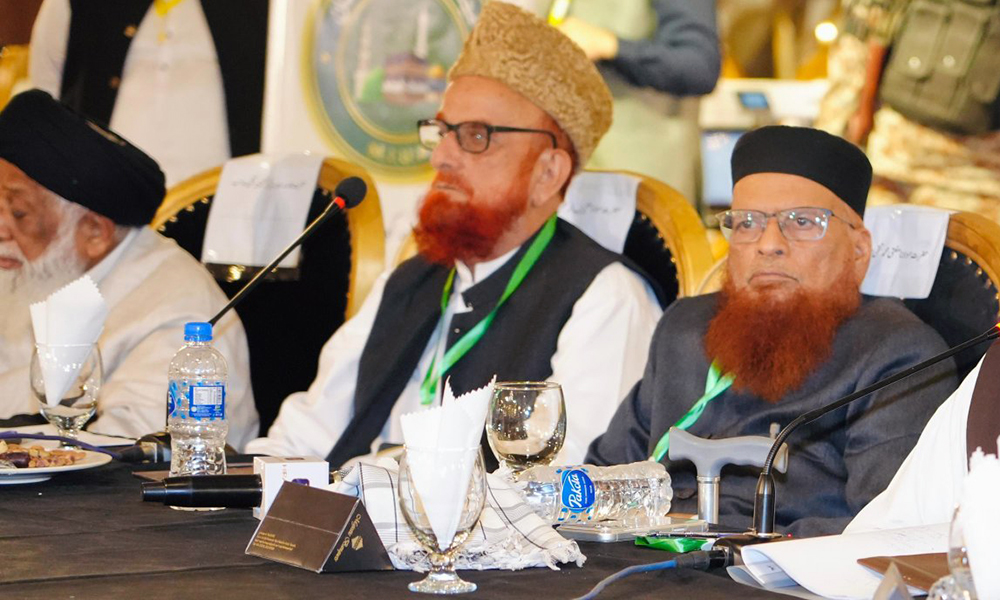
Prominent Pakistani religious scholar Mufti Taqi Usmani has strongly criticised moves to grant lifetime immunity to Pakistan’s Army Chief, General Asim Munir, describing such protection from judicial accountability as contrary to Islamic principles.
Speaking at a public gathering on Monday, Mufti Usmani said that Islam does not place any individual above the law, stressing that rulers, military leaders and ordinary citizens are equally accountable for their actions. He emphasised that justice and accountability form the foundation of an Islamic system, and that permanent immunity for powerful figures violates the spirit of Sharia.
The cleric warned that creating legal distinctions between state officials and the general public undermines public trust and fosters injustice within society. He urged state institutions to adhere to Islamic values when making political and military decisions, particularly those affecting governance and accountability.
Mufti Usmani’s remarks come amid growing debate in Pakistan over the role of the military in state affairs and the expanding authority granted to senior army officials. The issue has drawn heightened public and political attention in recent weeks, with critics arguing that excessive protections weaken democratic institutions and the rule of law.
Latest News
Fazal Ur Rehman says Pakistan’s ‘attacks’ on Afghanistan are unjustifiable
“If you justify attacks on Kabul by claiming your enemies are present there, then why is your response different when India targets its enemies inside Pakistan?” he said.
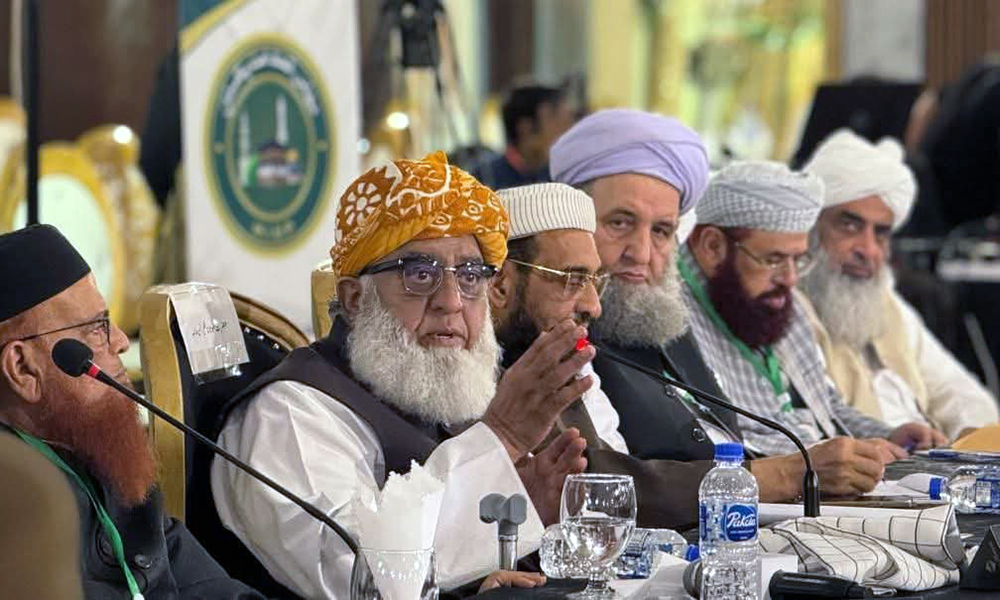
Senior Pakistani religious leader and politician Maulana Fazal Ur Rehman has condemned attacks on Afghanistan carried out under the pretext of targeting militant groups, calling such actions unjustifiable and counterproductive.
He urged both Kabul and Islamabad to resolve their disputes through dialogue and political engagement rather than military means.
Speaking at a gathering of Pakistani religious scholars titled “Pakistani Ummah Unity,” Fazal Ur Rehman, who heads the Jamiat Ulema-e-Islam (JUI-F) party, criticized Pakistan’s security approach toward Afghanistan.
Addressing Pakistan’s military leadership, he questioned the rationale behind cross-border actions, asking why attacks are justified against Afghanistan when similar logic is rejected in response to Indian strikes inside Pakistan.
“If you justify attacks on Kabul by claiming your enemies are present there, then why is your response different when India targets its enemies inside Pakistan?” he said.
Fazal Ur Rehman warned that continued tensions between Afghanistan and Pakistan serve the interests of neither country and risk further destabilizing the region.
He stressed that dialogue, mutual respect, and political understanding remain the only sustainable solutions to long-standing disputes between the two neighbors.
-

 Latest News2 days ago
Latest News2 days agoAfghanistan signs 30-year deal for marble mining in Daikundi
-

 Latest News4 days ago
Latest News4 days agoAfghan border forces prevent illegal entry of hundreds into Iran
-

 Latest News3 days ago
Latest News3 days agoPakistan summons Afghan diplomat over deadly attack in North Waziristan
-

 Latest News3 days ago
Latest News3 days agoAfghan health minister calls for medical cooperation between Kabul and New Delhi
-

 Latest News4 days ago
Latest News4 days agoJapan allocates nearly $20 million in humanitarian aid for Afghanistan
-

 Latest News3 days ago
Latest News3 days agoKarzai urges reopening of girls’ schools and universities for Afghanistan’s bright future
-
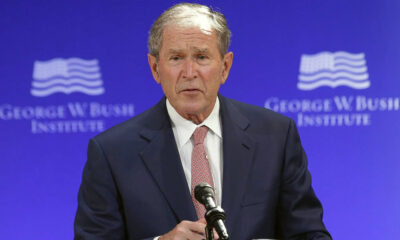
 Latest News2 days ago
Latest News2 days agoBush Institute criticizes Trump administration’s Afghan immigration freeze
-

 Health4 days ago
Health4 days agoIndia issues over 200 medical visas to Afghans in last four months


